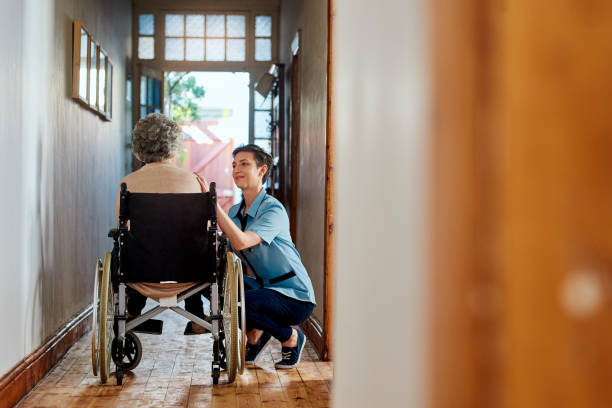Heart disease remains one of the leading causes of death worldwide, particularly among aging populations. Managing this chronic condition involves more than hospital visits and prescriptions—it requires a consistent, personalized approach to care that accounts for daily habits, vital signs, medications, and emotional well-being. For many individuals, especially seniors and those with mobility limitations, home health care offers a critical bridge between clinical treatment and everyday life.
In-home health care is a powerful ally in managing heart disease. It brings professional support into the comfort of the patient’s home, promoting continuity of care, early detection of complications, and improved quality of life. As the healthcare landscape shifts toward preventive and value-based models, home health care plays a transformative role in heart disease outcomes.
Contents
Monitoring and Managing Symptoms in Real Time
One of the most significant benefits of home health care is the ability to monitor patients in real-time. Trained nurses and aides frequently check vital signs such as blood pressure, pulse, and oxygen levels—key indicators for people living with cardiovascular disease. By identifying subtle changes early, home health professionals can alert physicians before minor issues become medical emergencies.
Additionally, many home care providers are now integrating remote monitoring technology, which allows real-time data to be sent directly to care teams. This connectivity supports quicker interventions and reassures patients that someone is always keeping an eye on their health, even between physical visits.
Medication Management and Adherence
Heart disease patients often juggle complex medication regimens. Missing doses, doubling up, or taking medications at the wrong time can result in serious complications, from irregular heartbeats to hospitalization. Home health care professionals help prevent these issues through direct oversight.
Nurses may organize pill boxes, coordinate prescription refills, and educate patients and family members about the correct use of medications. For patients with cognitive decline or those overwhelmed by multiple prescriptions, this layer of support can be life-saving. Consistent medication adherence also reduces the likelihood of readmissions, one of the most common issues facing heart disease patients.
Nutrition and Lifestyle Coaching
Diet and exercise are pillars of heart disease prevention and management, yet they are also some of the hardest behaviors to modify. Home health care teams often include dietitians and physical therapists who work one-on-one with patients to tailor meal plans and physical activity routines that are realistic and sustainable.
Rather than generic brochures or brief consultations, these professionals assess the home environment, cultural preferences, and physical limitations to develop customized plans. They also track progress over time and make adjustments as needed, helping patients build lasting habits that align with their medical goals.
Emotional and Psychological Support

Living with heart disease can be mentally taxing. The fear of another heart attack, the frustration of physical limitations, or the stress of lifestyle changes can all take a toll on mental health. Depression and anxiety are common among patients with chronic heart conditions, and untreated emotional distress can negatively impact recovery and adherence to treatment plans.
Home health caregivers are trained to recognize signs of emotional or psychological distress. They provide not only companionship but also act as liaisons to mental health professionals when needed. This holistic attention ensures that care isn’t just physical—it supports the patient’s overall well-being.
Reducing Hospital Readmissions
Frequent hospitalizations are both financially and emotionally draining. One of the clearest benefits of home health care is its ability to reduce readmissions through continuous observation, education, and timely intervention. According to studies, patients receiving consistent home care after hospital discharge for heart failure or cardiac procedures are significantly less likely to return to the emergency room.
This continuity of care also enhances communication between healthcare providers. Home care teams often coordinate with cardiologists, primary care doctors, and specialists to ensure everyone is aligned on the treatment plan. This collaborative approach minimizes gaps in care and improves patient outcomes.
Supporting Family Caregivers
Family members often serve as primary caregivers, and while their support is invaluable, it can also be overwhelming. Home health care providers relieve some of this burden by offering expert assistance, education, and respite care. Nurses can train family members on tasks like wound care, injections, or using monitoring devices, empowering them to participate in their loved one’s care with confidence.
This shared approach fosters stronger patient support systems and reduces caregiver burnout, an important factor in long-term disease management.
Looking Ahead: A Model for the Future
As the healthcare industry continues to evolve, the demand for home-based care models will only grow. For heart disease patients, this trend is promising. Home health care not only meets medical needs but also aligns with the patient’s lifestyle, offering a personalized, human-centered approach that hospitals and clinics can’t always provide.
From monitoring and medication to emotional support and education, home health care is redefining how we manage chronic illnesses like heart disease. It’s not just an alternative to institutional care—it’s a strategic, compassionate solution that prioritizes dignity, safety, and long-term wellness.

